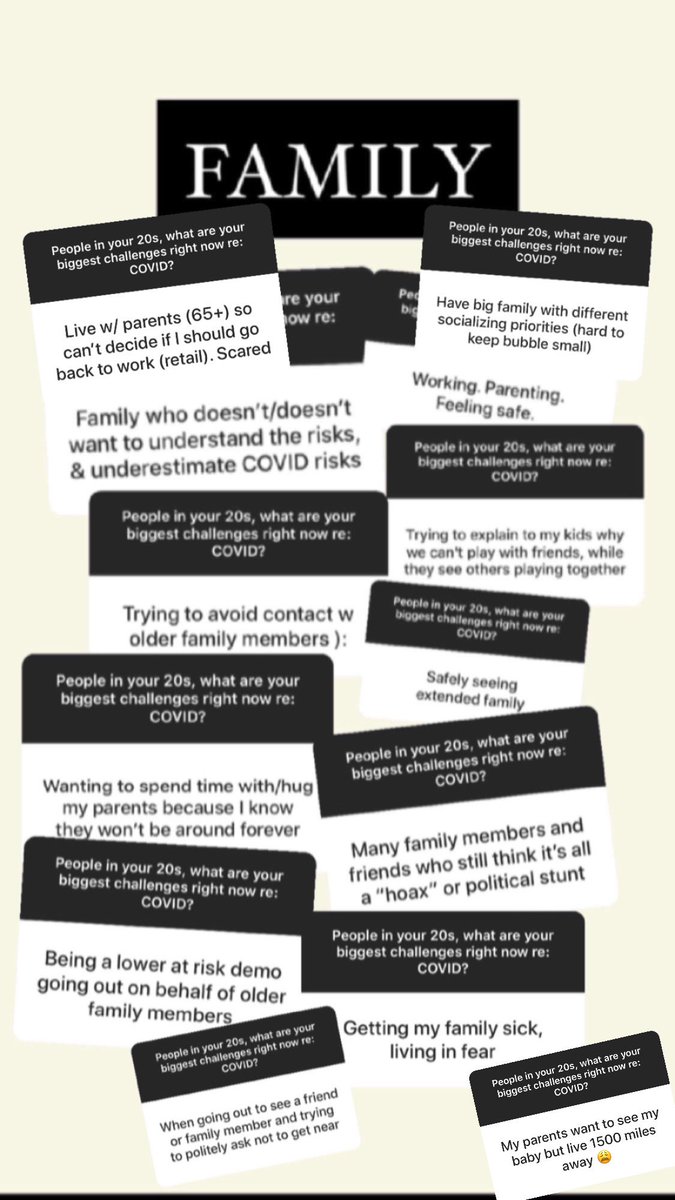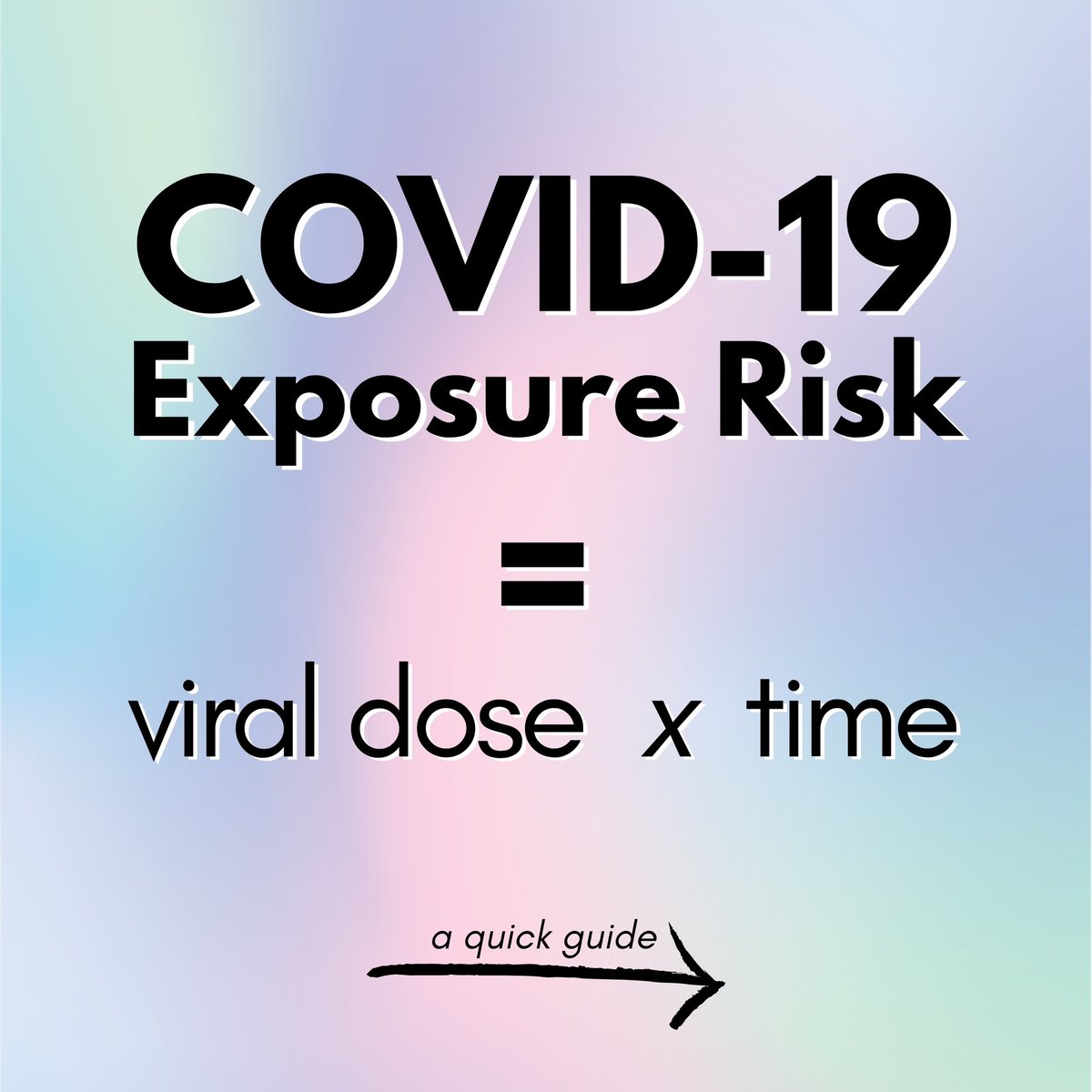
I asked people on Instagram what may be making them or their loved ones feel unsure about booking an appointment for an #AstraZeneca vaccine.
🧵 Thread with my 15-second answers to the 9 most frequent questions they asked.
#VaccinesWork #Canada #Ontario
🧵 Thread with my 15-second answers to the 9 most frequent questions they asked.
#VaccinesWork #Canada #Ontario
Q: How effective is [the AstraZeneca vaccine] compared to other vaccines?
A: When it comes to just one dose, which is all most people in Canada are gonna have for the next few months, the mRNA vaccines have similar effectiveness to the AstraZeneca.
NACI: canada.ca/en/public-heal…
A: When it comes to just one dose, which is all most people in Canada are gonna have for the next few months, the mRNA vaccines have similar effectiveness to the AstraZeneca.
NACI: canada.ca/en/public-heal…
Q: My mom is hesitant b/c she has seen the [AstraZeneca] efficacy is lower than Pfizer?
A: Study out of Scotland (bmj.com/content/372/bm…) looked at effectiveness of reducing hospitalizations 1 month after just 1 dose:
Pfizer: 85% ⬇️🏥
AstraZeneca: 94% ⬇️🏥
Both #VaccinesWork.
A: Study out of Scotland (bmj.com/content/372/bm…) looked at effectiveness of reducing hospitalizations 1 month after just 1 dose:
Pfizer: 85% ⬇️🏥
AstraZeneca: 94% ⬇️🏥
Both #VaccinesWork.
Let me elaborate on findings from this Scottish study:
If you were to get the AstraZeneca vaccine *tomorrow*, in a month you could expect up to a 94% reduced risk of hospitalization from COVID w/ just the 1 dose.
This is what else may happen in a month: cbc.ca/news/canada/to…
If you were to get the AstraZeneca vaccine *tomorrow*, in a month you could expect up to a 94% reduced risk of hospitalization from COVID w/ just the 1 dose.
This is what else may happen in a month: cbc.ca/news/canada/to…
Q: Can you explain the risks for persons between ages 30-55 who choose to take this?
A: Based off a COVID incidence of ~60 per 100k, for all age groups, the AstraZeneca vax offers far more protection against ICU admission for COVID than risks from clots.
wintoncentre.maths.cam.ac.uk/news/communica…
A: Based off a COVID incidence of ~60 per 100k, for all age groups, the AstraZeneca vax offers far more protection against ICU admission for COVID than risks from clots.
wintoncentre.maths.cam.ac.uk/news/communica…
Q: Everyone wants to know if getting [the AstraZeneca] vax means you can't get a more "effective" vaccine later?
A: All vaccines approved in Canada are = effective at preventing hospitalization & death. If that changes, we're testing mixing & matching + boosters.
Don't worry.
A: All vaccines approved in Canada are = effective at preventing hospitalization & death. If that changes, we're testing mixing & matching + boosters.
Don't worry.
Q: Are there signs of developing a blood clot that we can look out for?
A: Symptoms of the very rare blood clots with low platelets that can happen after AstraZeneca vaccination typically start 4-20 days after the first dose.
Learn more: cbc.ca/news/health/ca…
A: Symptoms of the very rare blood clots with low platelets that can happen after AstraZeneca vaccination typically start 4-20 days after the first dose.
Learn more: cbc.ca/news/health/ca…
Q: My mom is worried abt AZ because she has a family history of blood clots... Concerning or no?
A: Blood clots w/ low platelets are atypical, so having a fam history or underlying med condition, or being on certain meds may or not be relevant. I'm not sure, pls ask your doctor!
A: Blood clots w/ low platelets are atypical, so having a fam history or underlying med condition, or being on certain meds may or not be relevant. I'm not sure, pls ask your doctor!
Q: Would taking ibuprofen daily after receiving AZ reduce risk of clots?
A: This has not been recommended by any officials, nor unofficially recommended by any experts I know. If you have a fever or pain you can take meds, but otherwise it hasn't been studied yet so not advised.
A: This has not been recommended by any officials, nor unofficially recommended by any experts I know. If you have a fever or pain you can take meds, but otherwise it hasn't been studied yet so not advised.
Q: Do you expect the age group to open up for AZ to under 55?
(This was VERY popular -- lots of young people are interested in AZ!)
A: Health Canada maintains authorization for those 18+ (canada.ca/en/health-cana…), we are still waiting for NACI's independent review & statement.
(This was VERY popular -- lots of young people are interested in AZ!)
A: Health Canada maintains authorization for those 18+ (canada.ca/en/health-cana…), we are still waiting for NACI's independent review & statement.
Q: I'm trying to get pregnant .... chance it affects my or my partner's fertility outcomes?
A: There is NO known or theoretical risk that ANY of the vaccines authorized for use in Canada will cause infertility.
NONE. It was a lie and a rumour. statnews.com/2021/03/25/inf…
A: There is NO known or theoretical risk that ANY of the vaccines authorized for use in Canada will cause infertility.
NONE. It was a lie and a rumour. statnews.com/2021/03/25/inf…
Learn more about the risk/benefit analysis for the AstraZeneca vaccine here:
Spoiler: if you're 30+, regardless of COVID exposure risk, the benefits far outweigh the risks.
And if you're at high risk of COVID exposure the benefits are greater at any age
Spoiler: if you're 30+, regardless of COVID exposure risk, the benefits far outweigh the risks.
And if you're at high risk of COVID exposure the benefits are greater at any age
For those interested, some popular Qs I didn't get to:
- efficacy & effectiveness against variants of concern
- risks/benefits with underlying conditions
- contraindications if on certain meds
- ideal dosing schedule
- if AZ vax unclaimed, can people come early for dose 2
- efficacy & effectiveness against variants of concern
- risks/benefits with underlying conditions
- contraindications if on certain meds
- ideal dosing schedule
- if AZ vax unclaimed, can people come early for dose 2
• • •
Missing some Tweet in this thread? You can try to
force a refresh







